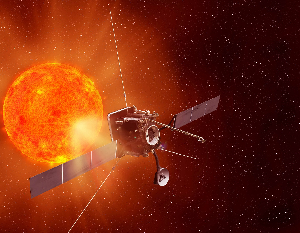
Past
The UK’s journey with satellites began in 1962 with the launch of Ariel 1 through the UK’s Science and Engineering Research Council which carried out solar science experiments. While the UK provided most of the scientific instruments for this, NASA built and launched the satellite.
The first satellite to be completely designed and built in the UK was Ariel 3 and it was successfully launched into space in 1967 by NASA – this was truly the turning point for the UK space industry.
Back in 1990, Inmarsat contracted EADS Astrium (now Airbus Defence and Space) to design and build the Inmarsat-2 F1 satellite, as part of its flagship Eurostar programme. This was first commercial satellite with a digital system reprogrammable while in orbit. This satellite held the world record for mission lifespan – 22.5 years, until the Airbus-built Inmarsat 2 F2 broke this world record in 2014 with a mission lifespan of 23.5 years. To date, Airbus Defence and Space has had 84 Eurostar satellites ordered, with the series of satellites having the best reliability rate on record.
In the early 2000s Galileo was formed as a concept and funded – Europe wanted its own global navigation satellite system so it no longer had to rely on anyone else. 2005 was a pioneering moment for the UK space industry as Surrey Satellite Technology Ltd was commissioned to build the prototype satellite GIOVE-A, followed by the innovative measuring instruments on the first 22 Galileo satellites. The UK’s central position in Galileo is based on unmatched expertise and innovation, showing just how valuable the UK space industry is.
Present
As part of Galileo, Europe has its own network of satellites, and will provide its own global navigation satellite system. 22 out of the 30 planned active satellites are now in orbit, with an aim of becoming fully operational by 2020.
The latest facts and figures for the UK space industry show that 40% of all small satellites currently in orbit are built in the UK. These UK-built satellites contribute to helping us in our everyday lives, through things like GPS navigation to telecommunication.
It is clear that the UK is a world-leader in building satellites because of the innovation and expertise of the UK space industry.
Future
With the funding of a spaceport in Sutherland, the UK can enter into a new era; for the first time in our history, we will be able to not just build our satellites in the UK but launch them into space from here too.





